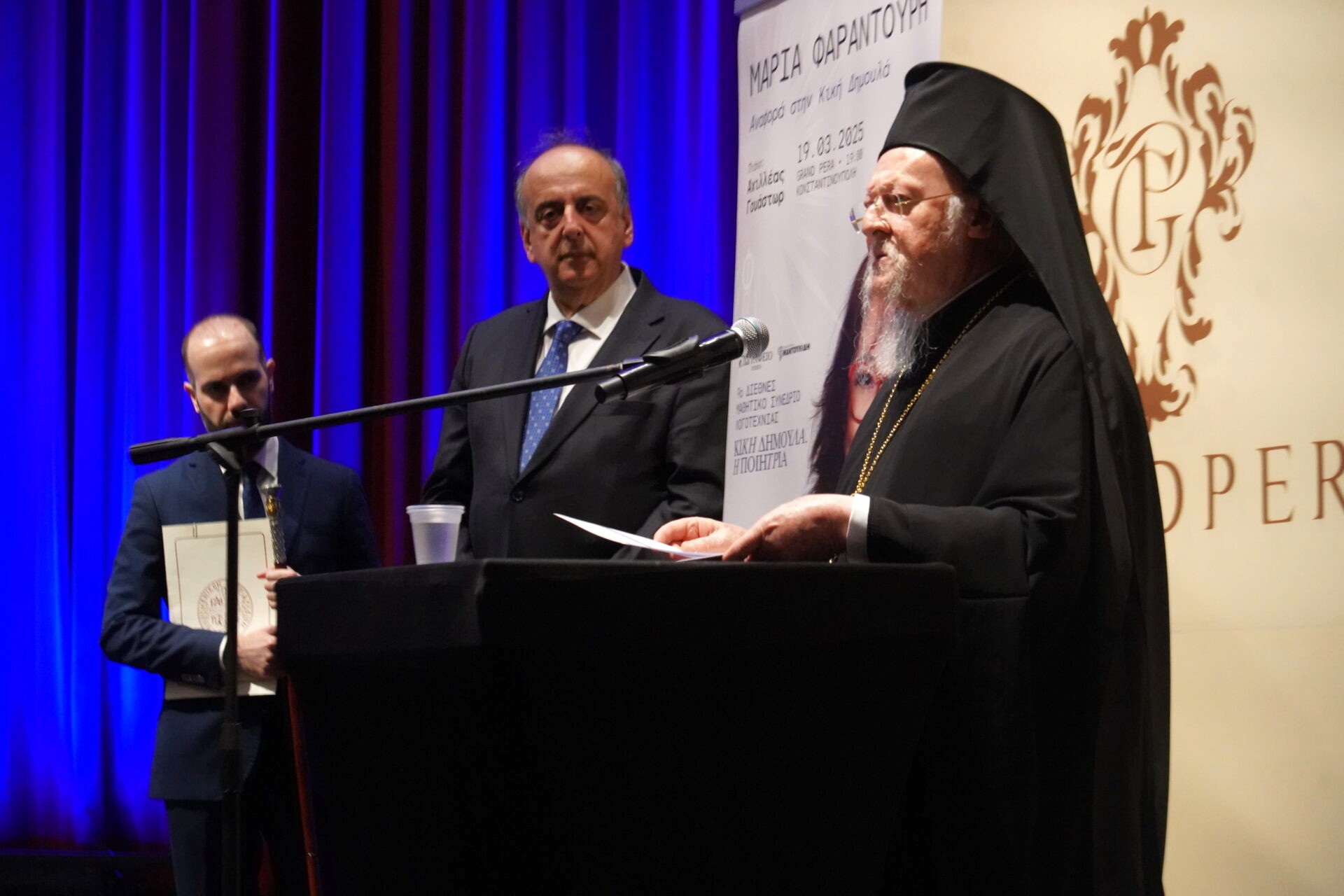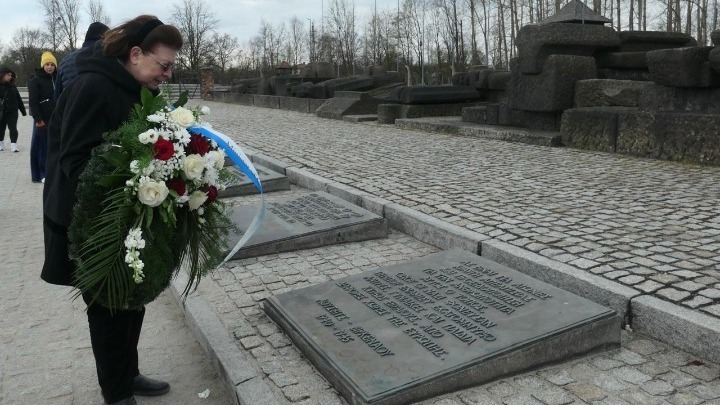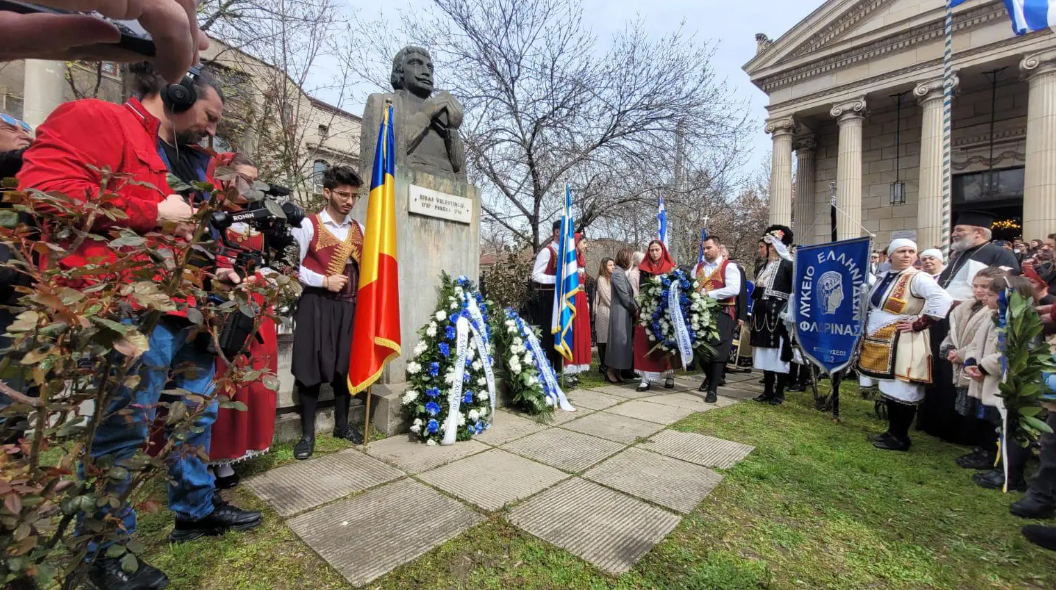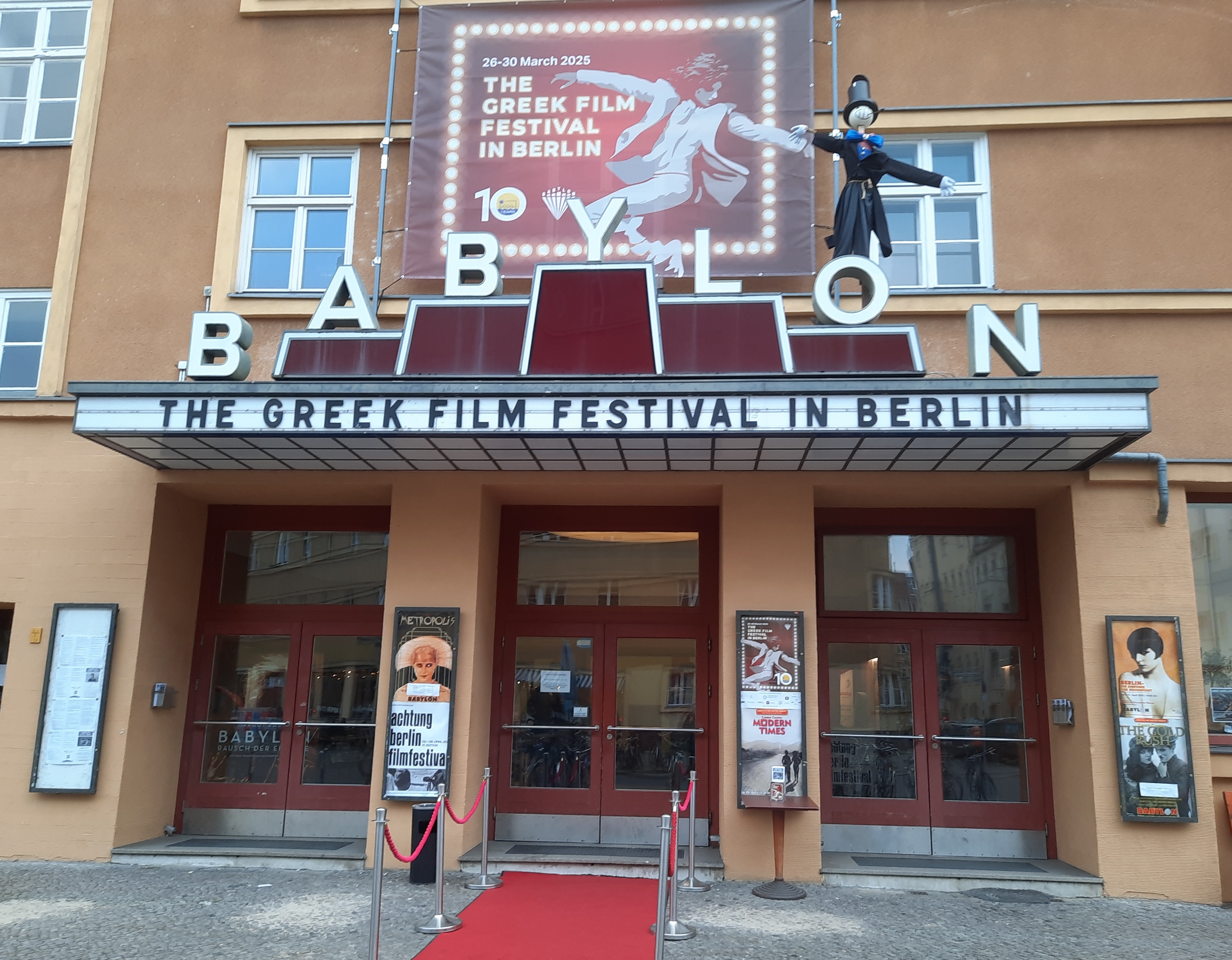Ecumenical Patriarch Bartholomew at the 9th International Student Conference on Literature themed: «Kiki Dimoula. The poet»

His All-Holiness Ecumenical Patriarch Bartholomew spoke on Wednesday afternoon, 19 March 2025, at the 9th International Student Conference on Literature, which is being held under the auspices of the Ecumenical Patriarchate and is dedicated to the great poet and Academic Kiki Dimoula.
“Our Conference will properly and rightly deal with the personality, work and contribution to culture of a unique form of contemporary poetry, Kiki Dimoula,” His All-Holiness pointed out in his opening address and continued referring to the poet’s work: “Her poems delight our linguistic and literary senses, our intellect and our heart, they touch the most sensitive chords of the human soul. They remind us that beyond interests and measurable reality, there is the dimension of the depth of things, “the deep mystery of the world”, which, as the great theologian Fr. Alexander Schmemann wrote, “is revealed to the saints, to children and to poets” (Eortologio, Akritas ed., Athens 1997, p. 64).”
At another point in his address, the Patriarch emphasised that our era and today’s society need poets with an imaginative mind, a sensitive soul, and a penetrating gaze, like Kiki Dimoula. Speaking about poetry in general, he said that it is a precious gift from heaven to humankind, and added:
“It reminds us that there are dimensions of human life inaccessible to scientific knowledge and to any form of objectification. It is the space where “numbers have nothing to say”, where there is no place for those who “see the blossoming almond tree with the eyes of a woodcutter”. In this sense, every genuine believer is also a poet, who is moved by the mystery of divine glory. When we speak of Christ, the “In the beginning was the Word”, who identifies with man in order to open the way to eternal life for him, our speech becomes a poem, a hymn and a doxology. The language of theology has never been an undivided information “about God”. It is always a poetic, heartfelt, philokalic language. We recall that the hymnological texts of our Church are a literary miracle. There is never any prosaism in ecclesiastical language. For this reason, we are unable to imagine a genuine believer who does not love literature and poetry more broadly.

For us personally, Greek literature was, throughout our lives, a source of spiritual joy. We read poetry from a very early age. As a student and seminarian at the Holy Theological School of Halki, we compiled a handwritten collection of our favourite poems, to which some of our classmates added a poem by hand. We always felt deep gratitude towards our writers and poets, for what they gave to the Nation and for the treasures that were revealed to us through their works.”
His All-Holiness then referred in particular to the importance of the Greek language and the importance of preserving it.
“Your Patriarch is certain that in the depths of all of your souls there is a feeling of pride for our language, the language of our ancestors and ours, which has been characterised as “the mother tongue of the spirit”, in which unparalleled works were written that changed the course of history. Our language still represents today the “wonder” of philosophers, the “dazzle” of faith in God, “as if God had chosen the Greek language to proclaim His Gospel”. It enriches us existentially, breaks our confinement to the logic of needs, holds our spiritual existence, refers and points to the Transcendent.

This language was and remains the speech of the native inhabitants of this City, the City of Archbishops Gregory the Theologian, the poet of theology, and the “golden mouthed” John (Chrysostom), the “Demosthenes of the Church”, the polymath Patriarch Photios the Great, hymn writers, poets, philosophers and the Orators of the Nation. We are all called to a common effort, so that future generations may also rejoice in our poets and prose writers, the hymnological texts of our Church and be proud of the richness of our language and culture. In this good fight, we must not forget, as bearers of a great spiritual legacy, that to whom much has been given, much is required of him, according to the Bible, “For from whom much has been given, much will be required” (Luke 12:48).”
His All-Holiness congratulated and blessed the organisers and supporters of the International Student Conference, as well as the participants in it, especially the students.
Photographs: Nikos Papachristou




